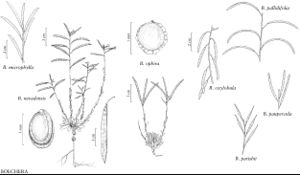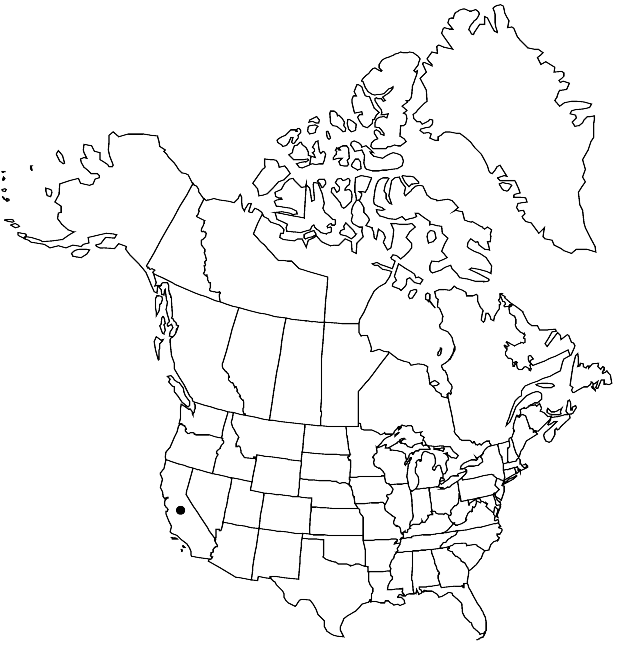Boechera parishii
Novon 13: 388. 2003.
Perennials; short to long-lived; sexual; caudex often woody. Stems usually 1 per caudex branch, arising from center of rosette near ground surface, 0.3–1.4 dm, densely pubescent proximally, trichomes short-stalked, 2–8-rayed, 0.2–0.4 mm, sparsely pubescent distally. Basal leaves: blade linear to linear-oblanceolate, 0.5–2 mm wide, margins entire, often ciliate along petiole, trichomes (branched), to 0.6 mm, surfaces densely pubescent, trichomes short-stalked, 6–12-rayed, 0.07–0.15 mm. Cauline leaves: 2–8, rarely concealing stem proximally; blade auricles absent, surfaces of distalmost leaves densely pubescent. Racemes 5–20-flowered, unbranched. Fruiting pedicels ascending, straight, 3–7 mm, pubescent, trichomes appressed, branched. Flowers ascending at anthesis; sepals pubescent; petals lavender to purple, 8–13 × 2.5–4 mm, glabrous; pollen ellipsoid. Fruits ascending, not appressed to rachis, not secund, straight, edges parallel, 1.5–2.5 cm × 1.8–2.5 mm; valves glabrous; ovules 12–20 per ovary; style 3–8 mm. Seeds uniseriate, 1.5–2 × 1–1.5 mm; wing distal or continuous, 0.05–0.2 mm wide. 2n = 14.
Phenology: Flowering Mar–May.
Habitat: Gravelly hillsides in sagebrush- juniper-pine areas
Elevation: 1900-2300 m
Discussion
Of conservation concern.
Boechera parishii is a distinctive, long-styled, sexual diploid known only from San Bernardino Mountains in San Bernardino County.
Selected References
None.
Lower Taxa
"elongated" is not a number."thick" is not a number."dm" is not declared as a valid unit of measurement for this property.

